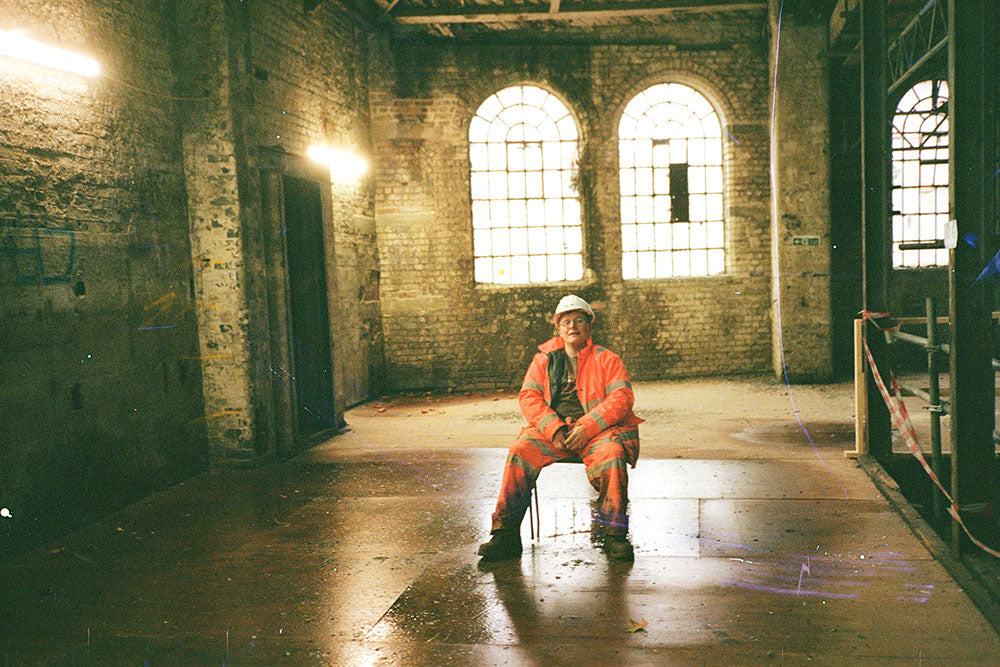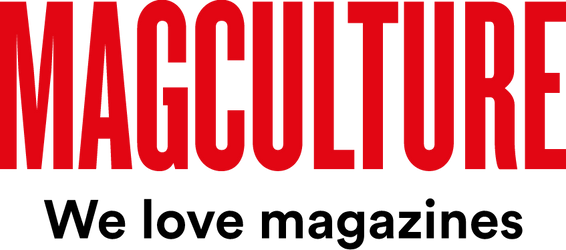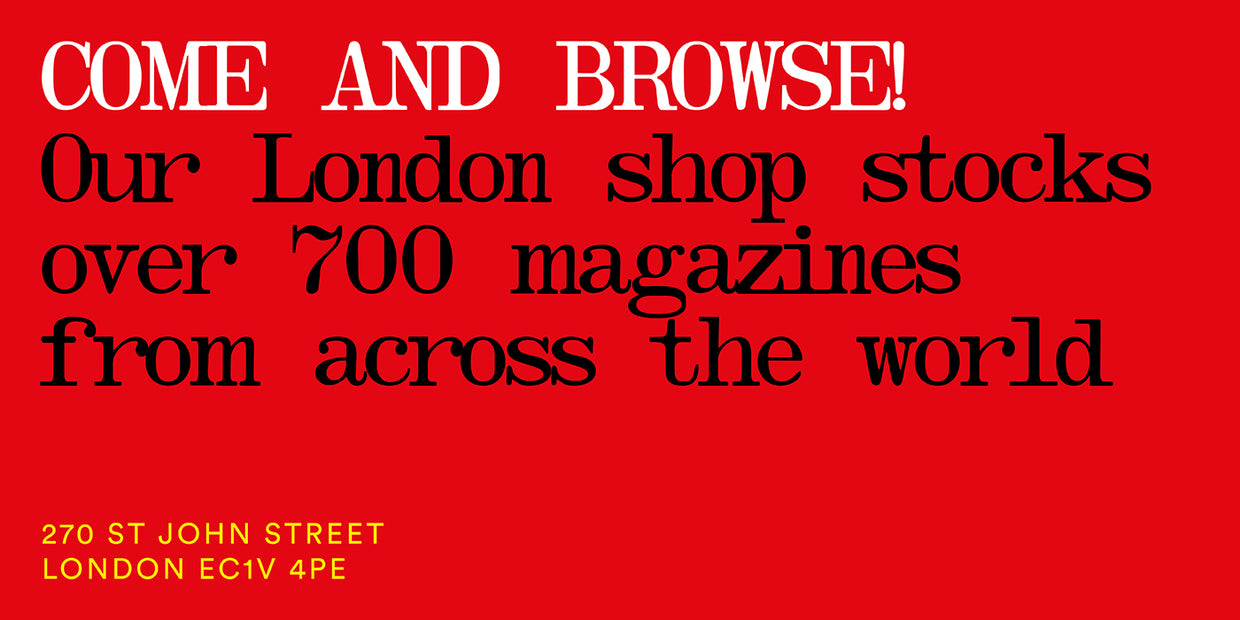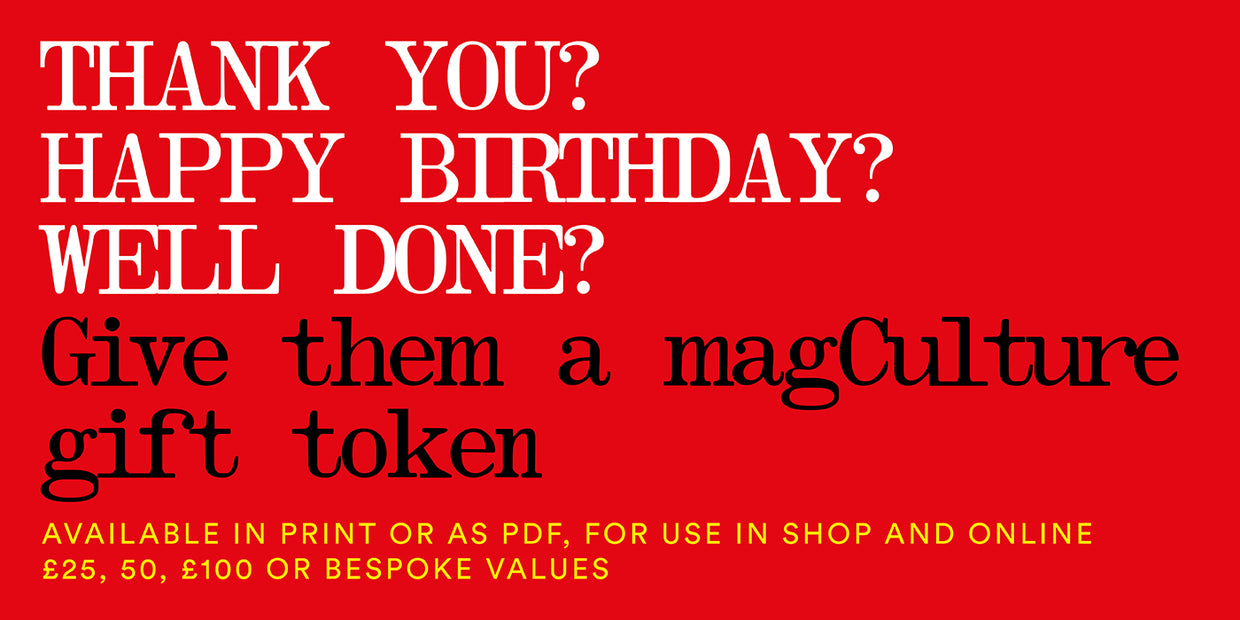
Henry Rayment-Pickard, ROAM
London-based archaeologist, writer and photographer Henry Rayment-Pickard has just launched ROAM, a magazine reflecting his interest in folklore and history.
Working with designer Tom Stockwell, Henry hopes the magazine will make the heritage industry and folk artistic movement more inclusive, accessible and forward-thinking. It has a unique editorial structure, with stories clustered together thematically and branching out across media including sculpture, film festivals, foraging, scavenger hunts, map-making and more. It’s certainly hit a sweet spot—we’re already sold out of our first delivery at the shop.
What are you doing this Monday morning?
I’ve just got back into the office of the charity I work for, XLP. The weather is good so I skulled a big pot of filter coffee, put on some energetic music (today it was a mix of Viagra Boys, Drenge and Parquet Courts), and cycled in from Hammersmith—passing pretty much every tourist landmark in London; my favourite of these is the statue of Boudicca and her daughters in a chariot, which faces me head-on as I wait at traffic lights outside the Houses of Parliament. I like to imagine she’s stuck in traffic, arms aloft and yelling ‘Come on you pricks, let’s get a move on!’.

Today, after I get through my emails, I’m planning for Christmas fundraising events—concerts, plays, sponsored Santa fun runs—and the like. I’m worried that my ability to ‘feel Christmassy’ is going to be ruined by having to think about it so much in October.

What can you see from your desk/ through the window?
I’m based in a beautiful and historic church, hidden beneath the financial district. Spotting it from Moorgate, hidden behind trees with the bell tower peeking out, it looks like a special and hidden place, almost like a mirage! At my desk, I face my boss pretty much head-on, so try to lurk behind my monitor. Out the window to my right is a lovely pair of poplar trees (at least I think they’re poplar trees) which obscure a view of the City Skyscrapers. My desk is the messiest in the office: Papers, notes, mugs and glasses are everywhere!

Which magazine do you first remember?
The Dandy! As a kid, I had a choice between £5 pocket money or a copy of the Beano and Dandy. I would always choose the latter. I was obsessed and used to have a laundry bin full of at least 100 issues. I wish I’d kept them. My favourite characters were Desperate Dan and Bananaman. I used to have all the annuals, a Beano & Dandy skateboard, and even a knockoff of Mario Kart that featured Dandy characters (If anyone remembers this, let me know!).

Which magazine matters to you the most this morning?
Tom Stockwell, the designer of ROAM, just gifted me a copy of the special edition of It’s Freezing in LA!, ‘Creative Responses to the Climate Crisis’. I really love the design and mission—breaking the ongoing climate crisis down into manageable and digestible topics, and melding together both scientific and creative responses into one cohesive analysis. I’m taking my time to read it slowly and digest it, I get sad if I fly through a magazine too quickly. I’m also revisiting one called Lizard Point ’99 by Jerry O’Driscoll, beautifully produced by Stone Age, which is about Jerry and a group of friends travelling to see the solar eclipse in Cornwall, in 1999. It’s a heartwarming magazine that captures perfectly the feeling of nostalgia and fleeting youth.

Describe ROAM in three words
Transcendent, Folk, Assemblage.
There seems to be a real interest in looking back at the past to rethink the future. Why is this happening now?
I think the COVID lockdowns were an important recent factor. Penned into our local areas, we took time to use our ‘Boris-approved’ exercise to explore our local parks, landscapes and heritage sites—looking at them with a more appreciative eye. I feel this can explain the recent explosion in interest in our right to roam: We took a good look around us and realised how little natural beauty remains accessible to us.
More broadly, I believe the bleak and depressing work-life realities of late-stage capitalism (especially in the cities) are driving people back to the countryside, either to live or in search of meaning. Landscape, heritage, folklore, old tales, tall tales and, generally, a sense of community can be found there. This environment is incredibly intoxicating and reassuring, while also—I believe—having positive implications for mental health. As you see in ROAM, these environments, or lack thereof, are inspiring a spectrum of responses.
People often wonder if the Folk Artistic movement is a trend, another ‘Folk Revival’ (a term which I think is inherently negative: always evoking an image of a reanimated corpse). However, unlike the movements of the 50s and 60s, I think this Folk Renaissance (As so beautifully coined by the artist Ben Edge) is moving alongside modernity, rather than against it—people are incorporating technology into their folk art, and their processes. This matches my own experience as an archaeologist, working with tech and heavy machinery – while also toiling by hand to understand the past.
In a more poignant reading, the movement has also grown out of activism and a need to once again reinterrogate the past, in all its horror: BLM and the dismantling of monuments to slavers and colonists; Welsh, Irish and Sottish folk re-engaging with their language and culture after centuries of suppression by the English; and the English—looking to their own folk culture suppressed by the Victorians, the church and the aristocracy… For everyone, the reality is this: In a modern, capitalist, multicultural, gender-fluid UK—what can a folk movement look like? I think people are ready to find out!
There’s a TikTok going around: ‘How often does your Boyfriend think about the Roman Empire?’ (Mary Beard even got in on this one!) which has then spun off into ‘How often do you think about mythology… ancient fashion… Queer history …folklore, etc…’ with the answer always being seemingly surprising:
‘Once a week’,
‘Once a day’,
‘A couple of times a day’.
We are always thinking back, so why not bring the past with us to inform a new future?
What advice do you have for someone launching their own magazine?
I wouldn’t do it alone, personally. It’s a cliché but it really does ‘take a village’. In the case of ROAM, it takes 58 contributors; a lot of patient friends; and one talented designer, Tom Stockwell!
I would also recommend going on walks. When Tom and I were dreaming up the project (then an idea for a short zine) we went to Avebury to chat, take photos and enjoy the archaeology. There’s a great quote by Rousseau (which I’m shamelessly stealing from Robert Macfarlane): ‘When I stop I cease to think; my mind only works with my legs.’
What are you most looking forward to this coming week?
I’m going back to my family home by the Blackwater Estuary, Essex on the weekend. I love it there, it’s a place full of stories and strange beauty. I will pet the dogs and go on long walks buffeted by the wind: It’s honestly the only place I feel truly free of anxiety. It was also the place that inspired a great deal of ROAM’s fabric: the typeface, the eclectic nature of the content, and several articles that I wrote.
Editor Henry Rayment-Pickard
Designer Tom Stockwell
roamfolk.com


